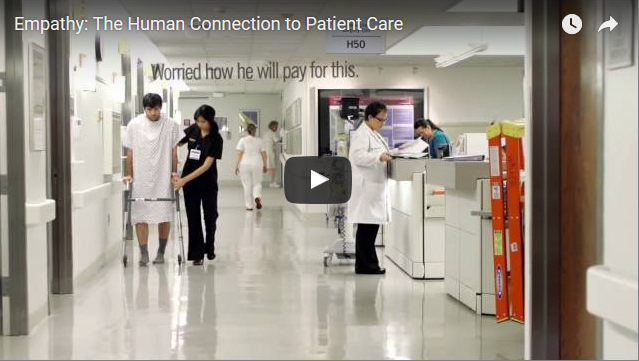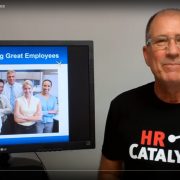There’s Always Something Else Going On
If there’s one thing I know about your employees it is this: there is always something else going on. The workplace it not some vacuum void of external influences. After you watch this video (and you want to watch this video) think about your employees walking around like this and put these thoughts above their head:
I can’t believe she is going to leave me.
I can’t believe he cheated on me.
I feel exhausted and depressed.
My family hates me.
I hate my parents.
I can’t believe I have cancer.
My mother just passed away.
My kid is in the hospital.
My kid just got diagnosed with ADD.
I’m going to lose my house.
I can’t believe lost all my money in that investment.
I don’t know if it’s worth living anymore.
These are the endless loop conversations that nobody else hears and it affects the ability to listen, concentrate, produce, engage, or feel good about work. Heck, I’ve been there in my life.
This is about them…it’s not about you. And there is nothing you can do as an outsider to their conversation to “control” it.
When you have empathy for people you connect at the heart level. Your caring for them is as a person, not as an employee. Within boundaries you ask how you can help. The best thing you can do is go for a walk with them and just listen… or give them something positive to work on…or a few days off to get straightened out.
When the time is right you can have a dialogue with them. This is not a conversation or sharing of opinions. It is deeper conversation that gets to the essence of the problem. You don’t have to be a psychiatrist to be able to do it either.
Just the continued awareness that there is always something else going on will help to better empathize with employees…as well as yourself.
So let’s give everybody a break!
All the best, Don
PS want to bring check out the GreatHR Executive Program for yourself? Check it out: https://www.greathr.com/the-great-hr-executive-program/





